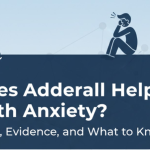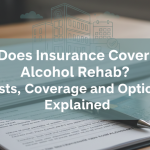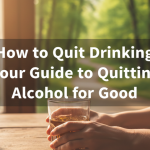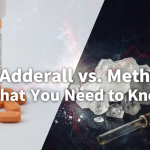Situational depression is a short term depression which is brought about by certain events or stressors in life. Although it is not long-lasting, it can have an enormous effect on your physical and emotional health. It is necessary to know the situational depression treatment options as well as seek professional assistance to resume the state of stability and enhance the quality of life. We provide holistic care to suit your unique needs and maintain your ability to overcome emotional difficulties and recover easily at Solutions Healthcare.

What is Situational Depression?
Situational or adjustment disorder/depressed mood is a depression that results in a reaction against certain circumstances in life like divorce, loss of a loved one, loss of work, or significant life transitions. Situational depression is also a direct effect of identifiable stressors unlike clinical depression, that might not have any apparent cause and tends to resolve once the situation has been resolved or controlled.
It may have an impact on everyday operations, relationships, and the general well-being, even though it is temporary. Recognition and intervention of situational depression at an early stage by means of appropriate treatment is important in averting complications.
What Are the Symptoms of Situational Depression?
The initial step in the recovery process is the identification of the symptoms of situational depression. Common signs include:
- Chronic and dismal, either cry or dead.
- Bad hobby, work and social interest.
- Decrease in energy or fatigue decrease.
- Incautiousness or impatience.
- Decision focusing or problem focusing.
- Somnets, as; insomnia, sleepiness.
- Food intakes or body changes.
- Despair or feeling of guilt.
Some people are affected by anxiety and depression, hence they need a situational depression and anxiety treatment strategy to treat the two conditions.
What Are the Causes of Situational Depression?
Situational depression is an external event that provokes the coping systems of a person. Common causes include:
- Issues of relationship, including break up, divorces or discord.
- The death of someone we love or grief associated with that.
- Financial crisis or unemployment.
- Change or major alterations in life.
- Trauma or personal crises
Although these triggers are external, situational depression may affect a person in different ways depending on his or her resilience, the support system, and other pre-existing mental health problems. The background of the situation is the most important in the choice of the best situational depression treatment options.
What is the Treatment for Situational Depression?
Situated depression treatment involves dealing with the immediate stressor, reducing depressive symptoms and enhancing the coping mechanisms. Treatment options include:
Therapy-Based Approaches
- Cognitive Behavioral Therapy (CBT): This helps an individual to be aware of harmful thinking styles and replace them with more beneficial ways of thinking.
- Interpersonal Therapy (IPT): The emphasis is laid on the betterment of relationships and social functioning, which are usually required due to situational depression caused by personal or work-related stress.
- Group Therapy: Peer support and shared experience can be used to decrease the feeling of isolation.
Medication
Medication can be given in a few instances to relieve severe depressive or anxiety symptoms. Options may include:
- Low-mood antidepressants.
- Anti-anxiety drugs in cases the situational depression exists in anxiety.
To guarantee adequate dosage and observe side effects, medical supervision is a component of full-scale situational depression and drug treatment.
Natural and Lifestyle-Based Treatments
To those who want to try situational depression natural treatment, lifestyle modifications will affect the mood and resilience:
- Exercise to increase the endorphins.
- Healthy dieting and sleep.
- Meditation, yoga, and mindfulness.
- Diary and artistic means to work out feelings.
- Developing a personal social network.
Combining these natural treatments with treatment and in case of need, medication may improve recovery and prevent relapse.
Stress Management Techniques
Training on stress management is part of treatment. Some of the techniques include breathing, relaxation, time management and training on coping skills. These measures also relieve the symptoms of situational depression, and in addition, they can offer enduring immunity to future stressors.
Care at Solutions Healthcare
In Solutions Healthcare, we offer personal healthcare that is tailored to help you overcome situational depression. We are a holistic organization that covers:
- Personal Assessment: What are your personal case and symptoms?
- Special Treatment Doses: Combination treatment of therapy, medication, and lifestyle interventions.
- Integrated Support: Combating situational depression and related anxiety.
- Continued Observation: Making sure improvement and rearranging treatment to achieve the best outcomes.
We have a caring team of mental health practitioners who would ensure that you restore emotional balance and increase your quality of life. You are looking to find depression treatment options, some therapy, or advice regarding natural remedies. Solutions Healthcare can help you get started on the way to recovery.

Take the First Step Today
When you and your loved one are living with situational depression, do not delay seeking help. Early intervention may be of great help in healing. To initiate the process of emotional well-being and make a confidential appointment that will help you achieve a pleasant state of mind, call Solutions Healthcare at (386) 866-3600.
Frequently Asked Questions (FAQs)
Q. Does situational depression require medication?
Not always. A large number of individuals heal through treatment, lifestyle adjustments and guidance. But in case the symptoms are intense or chronic, it could be prescribed as one of the components of an overall situational treatment of depression.
Q. How to support someone with situational depression?
Wait, do not judge, and make them refer to a professional. Volunteer to take them to therapy and remind them that they are not the only ones. Even little gestures of support can do the trick.
Q. What is the best treatment for depression?
The most effective treatment depends on the individual, but in most cases involves a combination of psychotherapy and medication (as needed), and self-care measures. In the case of situational depression, it is the best to tackle the source issue and develop coping mechanisms.
Q. How to prevent situational depression?
Though you cannot always avoid stressors of life, you can lessen the risk of such stressors, which involve having a healthy support network, engaging in stress coping mechanisms, engaging in physical activities, and seeking assistance when you are feeling overwhelmed.
Q. What is the difference between situational depression and depression?
Situational depression is short-term and brought about by particular life occurrences but clinical or major depression can last indefinitely without a particular event that can be identified. They are different on the treatment approach, the severity and duration of the treatment.




























